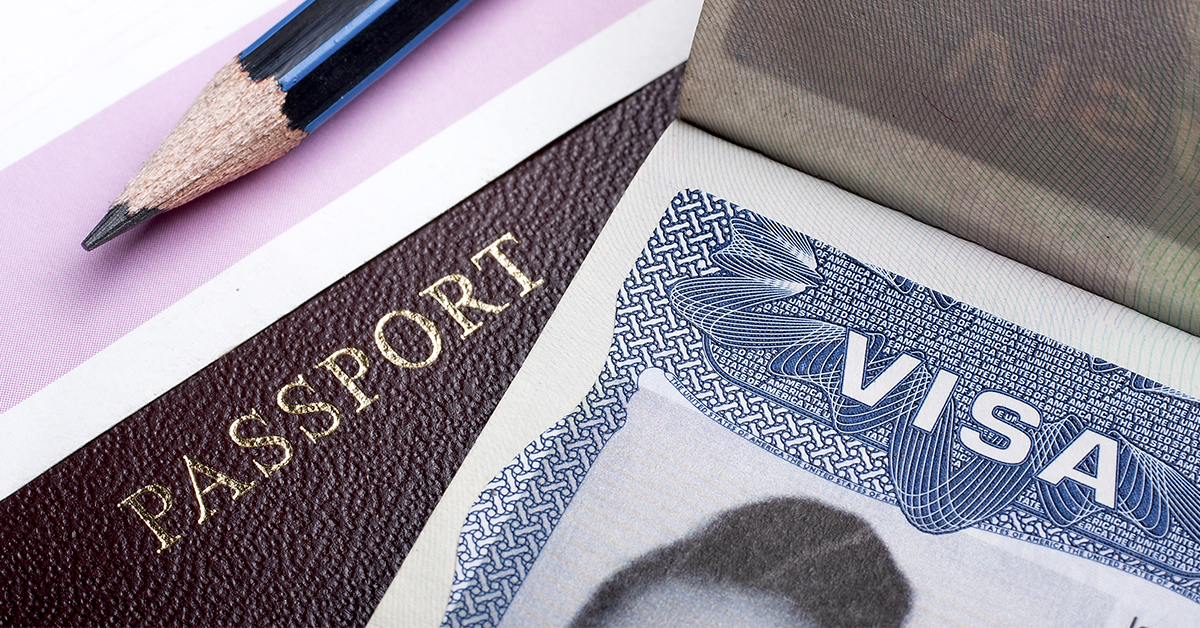
Unemployment insurance, as described in a recent blog post by our Labor and Employment colleagues, is a “joint federal-state program, administered separately by each state following guidelines established by federal law.” While the requirements of these programs vary from state to state, eligibility criteria generally exclude nonimmigrants whose work authorization is tied to a specific position with a specific employer (e.g., TN, H-1B, and L-1 workers).
This is especially true of the “able and available for work” criteria. With the onset of COVID‑19, some states have relaxed or waived these criteria so that some nonimmigrants may now be eligible for unemployment if they are furloughed or have reduced hours.
What are the “able and available for work” and “work search” requirements for unemployment insurance?
Under federal regulations, those applying for or claiming unemployment benefits must be able and available to accept suitable positions while they collect benefits and must be actively seeking employment.
Under normal circumstances, “able and available for work” generally means a worker has no barriers to accepting new employment. Examples of such barriers are long-term sickness or disability, medically required isolation, lack of access to transportation, full-time caregiving obligations, or legal barriers, including the restrictions that apply to many nonimmigrants. Workers must also actively be seeking employment opportunities by, for example, participating in training programs, applying for jobs, or attending professional networking events.
Under these rules, nonimmigrants may not qualify for benefits, but neither do other employees who are on temporary leave from work due to furlough or reduction in hours and who expect to return to their old jobs once circumstances change.
How do these requirements affect nonimmigrants?
Since many nonimmigrants only have work authorization for a specific role with a specific employer, they are normally unable to meet the “available for work” and “work search” requirements because there is a legal barrier to their freely accepting a new role with a new employer.
Virtually all nonimmigrants must pre-authorize a change of employer with federal immigration agencies, although the procedures to do so vary according to visa category. Some require complicated and time-consuming filings with U.S. Citizenship and Immigration Services; others must re-apply at a U.S. consular post abroad.
Even Canadian TN workers, who enjoy the simplest job portability procedures, are normally disqualified by the “available for work” requirement for unemployment benefits. For them, the “legal barrier” may be nothing more than a quick round trip to Canada and back, so they can submit a new application to a U.S. Customs and Border Protection officer at an air or land port of entry on their way back into the United States.
How has the meaning of “available for work” and “work search” changed under the emergency conditions created by COVID-19?
Currently, governors of many states have issued executive orders relaxing key requirements to allow individuals affected by COVID-19 to get unemployment benefits. Once the legal barrier preventing nonimmigrants from being immediately available for employment is lowered or eliminated, those individuals become eligible on an equal playing field with U.S. workers.
For example, in California, the work search requirement has been waived for workers who are “temporarily unemployed due to COVID-19 and expected to return to work with your employer within a few weeks.”
Like California, Oregon has also extended benefits to those temporarily out of work. According to the state’s unemployment website: “Benefits may be available to those who are on a temporary layoff. These benefits occur for claimants whose employer stops operation for a short period of time, such as cleaning following a coronavirus exposure or by government requirement. Workers can get UI benefits, and do not need to seek work with other employers. You must be able to work, stay in contact with your employer, and be available to work when called back.”
In a few states, like Georgia, benefits are even available to workers who have stopped working due to increased childcare obligations resulting from school closures.
Other states, including New York and Texas, have waived the standard 7-day waiting period for benefits, but continue to enforce all other requirements, including “work search” and “availability for work” criteria.
As with everything else about COVID-19, the facts of the situation are changing frequently and vary from location to location. Workers should consult the websites of their state unemployment offices on a regular basis to stay updated with the latest details.
- Senior Attorney
Lieselot is a global immigration and labor and employment lawyer advising companies on immigration processes around the world.
With experience guiding companies and individuals through immigration processes in the US and ...
Search
Recent Posts
Categories
- Adjustment of Status
- Asylum
- Business Immigration
- CBP
- CIS
- Consular Processing
- Court Decisions
- COVID-19
- DED
- Deferred Action
- DHS
- DOL
- E-Verify
- EAD
- Enforcement
- F-1
- Federal Agencies
- Federal Laws/Legislation
- Global Immigration
- H-1B
- H-2B
- Homeland Security
- Humanitarian Relief
- I-9
- ICE
- Immigrant Visas
- L-1
- Labor Certification
- Legislation
- Naturalization
- News & Events
- Nonimmigrant Visas
- Other
- Processing Times
- REAL ID
- Refugees
- SSA
- State Department
- State Laws/Legislation
- TN
- TPS
- US Embassies
- USCIS
- Visa Lottery
- Visa Waiver Program
- Waivers
- Workplace Enforcement
Tags
- AC21
- ACA
- ACWIA
- Adam Rosser
- Adjustment of Status
- Adjustment of Status Applicant
- Adoption
- Advance Parole
- Agencies
- AILA
- Air Travel
- Application Service Centers
- Appropriations
- Arizona
- Asia
- Asylee
- Asylum
- Attorney General
- Awards
- B-1 Business Visitor
- B-1/B-2
- B-2 Tourist
- BALCA
- Biometrics
- Blanket L-1
- Board of Immigration Appeals
- Bob Quackenboss
- Brazil
- Brett Burns
- Brexit
- BRIDGE ACT
- Business Existence
- Business Immigration
- Business Immigration; USCIS; National Interest Waiver; labor certification
- Business Travel
- California
- Canada
- Cap
- Cap-Exempt
- Cap-Subject
- CARES Act
- CBP
- CDC
- Certification
- Chad
- Chaffetz
- Chambers USA
- Change In Location
- Change In Work Site
- Charities
- China
- Chris Pardo
- Citizenship
- Compliance
- Consular Processing
- Controlled Technology
- Coronavirus/COVID-19
- Court
- Covid test
- CPT
- Current Events
- Customer Identity Verification
- Customs and Border Protection
- DACA
- Decisions
- DED
- Deemed Export
- Deferred Action
- Deferred Inspection
- Department of Homeland Security
- Department of Justice
- Department of Labor
- Department of State
- DHS
- Diversity Visa
- Diversity Visa Lottery
- DOL
- DOMA
- Domestic Violence
- Donald Trump
- DOS
- DREAM Act
- Driver License
- DS-160
- DV Lottery
- DV-2019 Dates
- E visa
- E-1
- E-2
- E-2 investors
- E-2 Spouse
- E-2 Visas
- E-3
- E-3 Australians
- E-3 Spouse
- E-Verify
- E13
- E21
- EAD
- EADs
- EAR
- Earthquake
- EB-1
- EB-1 Backlog
- EB-2
- EB-3
- EB-5
- Ecuador
- El Salvador
- Electronic System for Travel Authorization
- Embassy
- Emily Burkhardt Vicente
- Employer
- Employment Authorization
- Employment Eligibility Verification
- Employment-Based Immigration
- ESTA
- ETIAS
- European Union
- eVerify
- Executive Order
- Executive Orders
- Exempt Employee
- Export
- Export License
- F-1
- Fairness for High Skilled Immigrants Act
- Family
- Family Relationships
- FAR
- Federal
- Federal Acquisitions Regulation
- Federal Contracts
- Federal Law
- Fees
- Filing Fees
- Fingerprints
- Fiscal Year 2016
- Foreign Grads
- Form 140
- Form I-9
- Form I-944
- Form Updates
- Fourth Circuit
- France
- Fraud Detection and National Security Directorate
- Full Vaccination
- Furlough
- FY15
- FY2017
- FY2020
- Georgia
- Global Entry
- Global Mobility
- Golden Arrow
- Grace Period
- Green Card
- Greg Robertson
- Guam
- Guinea
- H-1B
- H-1B Cap
- H-1B Registration
- H-1B Workers
- H-1B1
- H-2
- H-2B
- H-4
- H-4 EAD
- H-4 Spouse
- H-4 Spouses
- Haiti
- Hawaii
- Help HAITI Act
- HIV
- Holly Williamson
- Homeland Security
- Honduras
- HR 1044
- Humanitarian Relief
- Hunton Andrews Kurth
- I-129
- I-140
- I-20
- I-485
- I-539
- I-601A
- I-765
- I-9
- I-94
- I-94 Automation
- Ian Band
- ICE
- iCert
- Identification Document
- Immediate Relatives
- Immigrant
- Immigrant Investor Program
- Immigrant Visa
- Immigrant Visas
- Immigration
- Immigration & Customs Enforcement
- Immigration in Sports
- Immigration Uncertainty
- India
- Infopass
- International Offices
- Interns
- interview
- Interview Appointment
- Iran
- Iraq
- IRCA
- ITAR
- J-1
- Japan
- Josefina Augusto
- Juan Enjamio
- Kurt Larkin
- Kurt Powell
- L Visa
- L-1
- L-1 Intracompany Transferees
- L-1B
- L-2
- L-2 Spouse
- Labor
- Labor Certification
- Labor Market Test
- LCA
- Legal 500
- Legal Resident Aliens
- Legislation
- Liberia
- Liberian Nationals
- Libya
- License
- Limited Vaccine Availability
- Litigation
- Liya Green
- Lottery
- LPR
- M-1
- M-274
- M. Brett Burns
- Maryland
- Matter of A-B-
- Medical Exams
- Mexico
- Multinational Manager
- N-400
- NAFTA
- National Interest Exception
- National Interest Waiver
- National Labor Relations Board
- National Law Journal
- National Prevailing Wage Center
- National Visa Center
- Naturalization
- Natz
- Nepal
- New York
- NEXUS
- Nicaragua
- Nicaraqua
- Ninth Circuit
- NIV
- NLRB
- No-Match
- Nonimmigrant
- Nonimmigrant Visas
- Nonresident Alien
- North Korea
- Northern Mariana Islands
- NTA
- NVC
- O visa
- O-1
- Office Closures
- OPT
- Oregon
- P-1
- Passport
- Pérez v. Pérez
- PERM
- Permanent Residents
- Policy
- Portability
- Practical Training
- Preclearance
- Preflight Inspection
- Premium Processing
- Prescreening
- Presidential Proclamation
- Prevailing Wage Request
- Priority Date
- Pro Bono
- Processing Times
- Prohibited Entry
- Prosecutorial Discretion
- Provisional Waivers
- Public Access Files
- Public Charge
- REAL ID
- Reciprocity
- Recovery Rebate
- Reducing Salary
- Refugee
- Refugees
- Registry
- RFE
- Rugby
- Ryan Glasgow
- Safe-Harbor
- Same-Sex
- Satisfactory Departure
- SAVE Jobs USA
- Scott Nelson
- SCOTUS
- Section 1
- Selective Service
- SENTRI
- Sessions
- Shaena Rowland
- Sierra Leone
- Social Media
- Somalia
- South Sudan
- Special Events
- State Department
- State Law
- Stateside Waivers
- STEM OPT
- Stepchildren
- Stephen Pattison
- Sudan
- Supreme Court
- Syria
- Tax Credit
- Temporary Visas
- Terence Connor
- Texas
- TN
- TN visa
- TPS
- Tracker 8
- Trailblazer
- Trainees
- Transit Without a Visa
- Travel
- Travel Ban
- Travel Restrictions
- Trusted Traveler
- Tsunami
- U Visa
- U.S. Customs & Border Protection
- U.S. Department of State
- U.S. Embassies
- Ukraine
- UN
- Unemployment
- Unemployment Benefits
- Unfair Labor Practices
- Unlawful Presence
- US Citizenship and Immigration Services
- US Department of State
- US Embassy
- US passports
- US Travel Ban
- USCBP
- USCIS
- USD140
- USD150
- USD390
- Vaccine Passport
- Venezuela
- VIBE
- Visa
- Visa Bulletin
- Visa Control
- Visa Lottery
- Visa Revalidation
- Visa stamp
- Visa Waiver
- Visa Waiver Program
- Visas
- VWP
- Wait Times
- Waivers
- Whistleblower
- WHO
- Windsor v. United States
- Work Authorization
- Work Permits
- Work Search
- Worksite Enforcement
- Worksite Inspection
- World Health Organization
- Yemen
- “Buy American Hire American”

